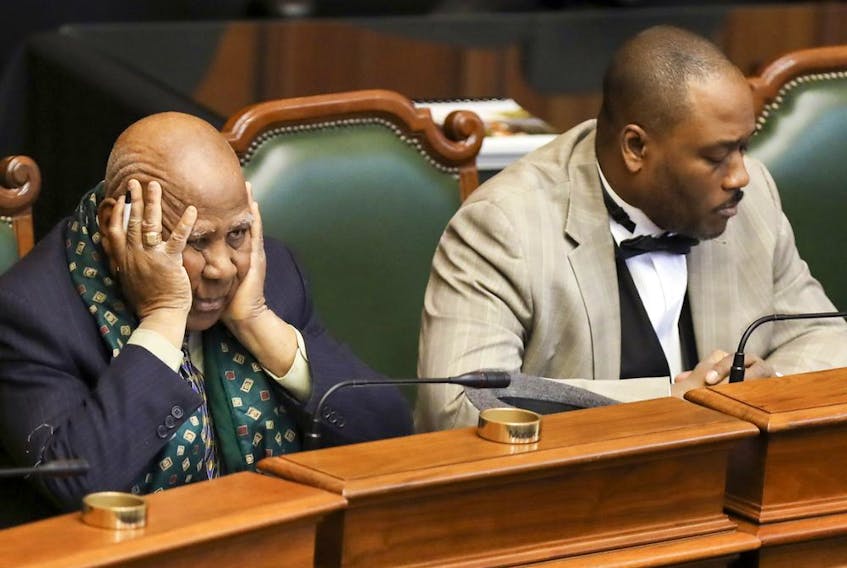MONTRÉAL, Que. — A Quebec Superior Court decision allowing a class-action suit to proceed against the city of Montreal for incidents of racial profiling by police is a ray of hope after a 40-year struggle for justice, the Black Coalition of Quebec said Tuesday.
“It is a historic day,” said Coalition president Dan Philip at a press conference at the Coalition’s office on Décarie Blvd.
“It is not only a victory for the black community. It is also a victory for justice,” he said.
In a 14-page ruling Aug. 7, Judge André Provost gave the go-ahead for the suit launched by the coalition and Alexandre Lamontagne, who contends he was a victim of racial profiling in 2017.
In August 2017, police intercepted Lamontagne as he was looking at his phone after leaving an Old Montreal bar. Captured on video, the exchange became heated and Lamontagne was charged with obstructing police officers and assault with intent to interfere with police work. The charges were later dropped.
Philip said 150 people who have been victims of profiling have already stepped forward to join the suit, and he predicted that many more will come forward, bringing the total to several hundred.
He noted that members of the black community have battled against being unfairly targeted by police for decades, with little success.
“The problem is a cancer in our society,” he said.
Last December, the city unveiled a new strategy to eliminate racial and social profiling, including the hiring of three independent researchers to collect and analyze data on profiling.
But Philip charged that all of the city’s actions on the file have amounted to no more than “lip service.”
“For more than 40 years, we have been looking for some semblance of justice,” he said.
Philip, who said he was very optimistic about the outcome of the class action, declined to speculate on how much victims might receive in compensation if it is successful, but said he was hopeful that “victims get some substantial amount.”
In December, coalition lawyer Jacky-Éric Salvant announced he was launching the class action, which seeks $4 million for 500 victims of police profiling — $8,000 per claimant.
Among those attending the press conference was Jean-Claude Yves, 55, who said he is joining the class action after being wrongfully arrested in 2017 while shopping on Masson St. in Rosemont.
Yves said police officers investigating a robbery in a Maxi store stopped him and told him to drop the bag he was carrying, which contained only a Bible.
He had to make five court appearances before being cleared, even though the true culprit had already been arrested in the meantime.
The ruling says the suit is open to any “racialized” person who was racially profiled by police and unjustly stopped, arrested or detained between Aug. 14, 2017 and Jan. 11, 2019 (for people who suffered physical harm) and between July 11, 2018 and Jan. 11, 2019 (whether or not they suffered physical harm).
In the ruling, Provost noted that while the city of Montreal did not question Lamontagne’s right to seek recourse for being racially profiled, it disputed whether profiling could be proven to be widespread and systemic. However, Provost noted that documents including the police department’s strategic plan and Montreal’s racial profiling strategy “abound with facts showing Mr. Lamontagne’s situation is not unique.”
Copyright Postmedia Network Inc., 2019









